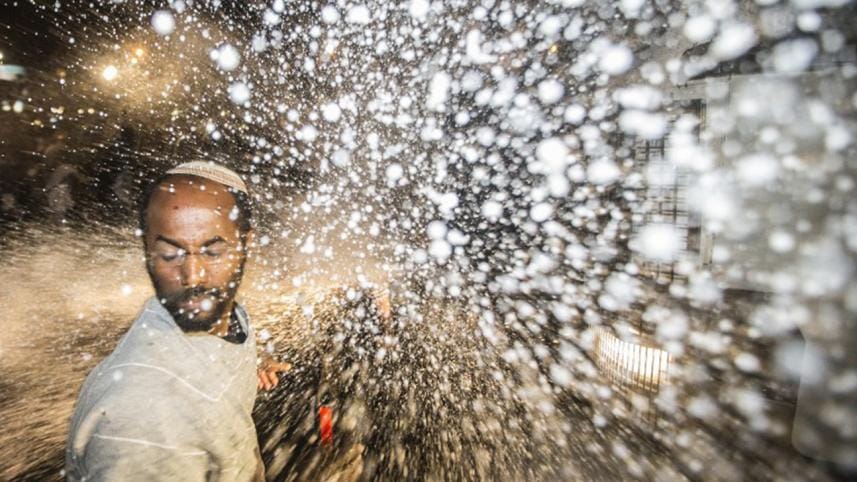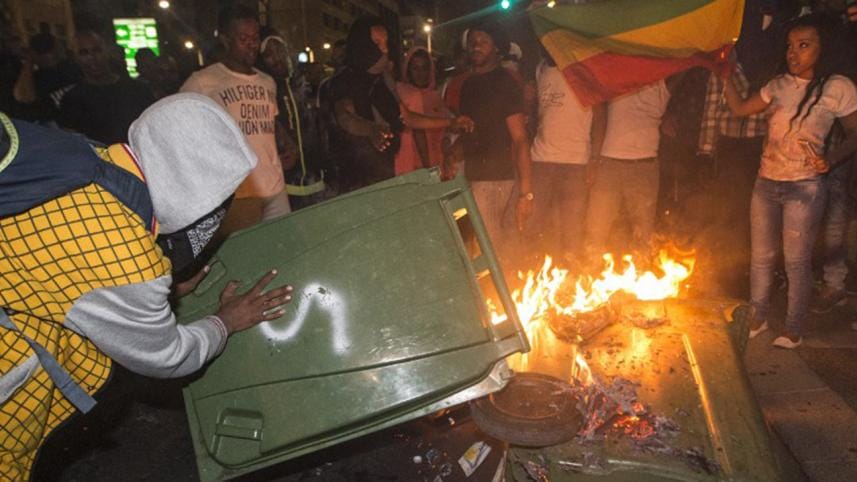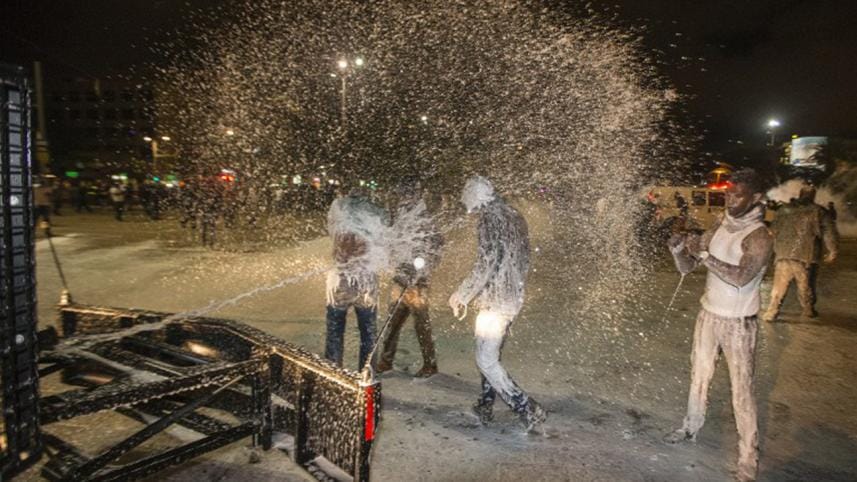Teargas used as Ethiopian Jews protest in Israel

Police in Israel have fired tear gas and stun grenades in clashes with ethnic Ethiopians protesting about what they say is police brutality and racism.
Earlier, thousands of Israeli Jews of Ethiopian origin had taken part in a rally in Tel Aviv.
But the protests turned violent and some demonstrators tried to storm the city's municipality building.
At least 20 police officers were hurt and 26 people were arrested.
[twitter]
VIDEO: Ethiopian Jews clash with Israeli police http://t.co/MP0ChM1zSK
— The Associated Press (@AP) May 3, 2015[/twitter]
Israeli police on horseback charged demonstrators in an effort to bring the situation under control.
The protests came after a video emerged last week of an Israeli soldier of Ethiopian descent being beaten by police in Tel Aviv.
Two police officers have since been suspended on suspicion of using excessive force.
Ethiopian Jews living in Israel have said in the past that they are subject to discrimination, and similar protest in 2012 followed reports that some Israeli landlords were refusing to rent out their properties to Ethiopian Jews.
Ethiopian Jews' income is considerably lower than the general population, and they are much more likely to face limited educational opportunities and to end up in prison.
'Not prepared to wait'
On Sunday, protests started peacefully as demonstrators blocked a busy road. Many walked with their hands held together in the air, to signify handcuffs. But the demonstration became more violent as night fell.
Some protesters threw stones, bottles and chairs and tried to enter the Tel Aviv municipality building.
One demonstrator told Israel's Channel 10 television channel: "Our parents were humiliated for years.

"We are not prepared to wait any longer to be recognised as equal citizens. It may take a few months, but it will happen."
Prime Minister Benjamin Netanyahu said there was "no place for violence and such disturbances".
On Monday, Netanyahu will meet the soldier who appeared in the video, as well as security and immigration officials.
Tel Aviv police chief Yohanan Danino told Channel 10: "The use of violence by a small minority of the many protesters does not serve their struggle.

"Whoever harms police or civilians will be brought to justice.''
Tens of thousands of Ethiopian Jews were airlifted to Israel in secret operations in the 1980s and 1990s. There are now some 135,000 Ethiopian Jews living in Israel.



 For all latest news, follow The Daily Star's Google News channel.
For all latest news, follow The Daily Star's Google News channel.
Comments